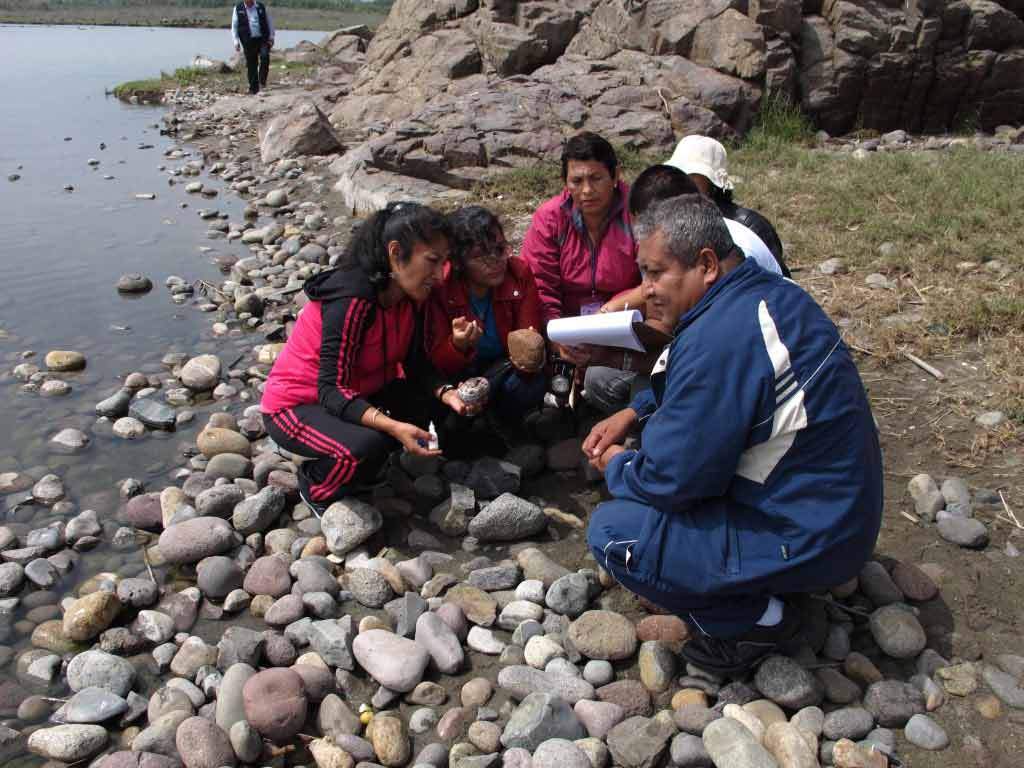Peru’s Ministry of Education recently announced that it will be adopting the Blue Planet educational program, which was developed at the Weizmann Institute of Science, into its schools’ curricula. Blue Planet, which takes a hands-on approach to learning about the water cycles on our planet, has been recognized by UNESCO as a model program for environmental education. The project’s developer, Prof. Nir Orion of the Institute’s Science Teaching Department, was recently in Peru leading a workshop for teachers.
“Learning is a natural process,” says Orion, “an instinct that almost all animals are born with. But like all instincts, it only comes into play when it is needed. Many children do not learn well in school because it is a system that is created to meet the needs of the system, itself, and not those of the child.”
Orion believes that the learning instinct might be reawakened by creating a connection between the student’s world and the subject matter. Thus, his approach to teaching involves, among other things, an exploration of both the natural environment and the human ones that exist beyond the walls of the classroom. Lessons learned this way, which have some significance for the student, will be internalized and thus “truly learned.”
Although the basic principles of the Blue Planet program remain constant, the change of location means that Orion goes out to survey each region, constructing a local narrative to guide the lesson plan. His “working files” tell the stories of Argentina, Chile, the US, India, Portugal and, of course, Israel. In Peru, for example, he found that, even though the country receives a large amount of rainfall, the perception is that the region suffers from a water shortage. So the workshop focused, among other things, on the topic of drainage basins in populated areas. The Blue Planet approach is a part of the science curriculum “thinking science – understanding environment.”
Orion’s approach includes both out-of-classroom learning and learning inside the classroom. “Some things cannot be taught in a deep way within the classroom,” he says. “When we use the outside environment properly, curiosity and interest arise. That is when the student starts to ask questions.” The ultimate goal is to give the students the tools to think analytically, to take in their field and lab observations and arrive at conclusions, and to present their findings to others. “If they gain the ability to integrate data, process it logically to arrive at knowledge, and present this knowledge orally and in writing,” says Orion, “they will be set for life.”
